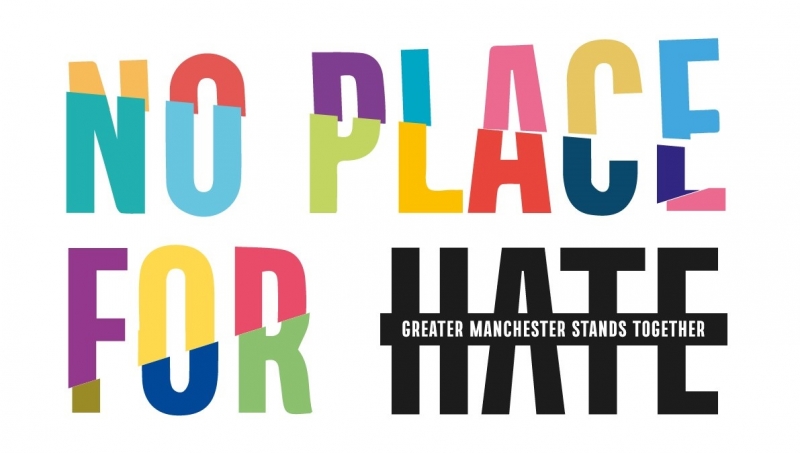What is a Hate Crime?
Hate crimes have a profound impact on individuals and communities. This guide aims to empower you with the knowledge to recognise, address, and report hate crimes in the UK, fostering a safer and more inclusive society.
A hate crime is any criminal offence committed against a person or group due to their perceived race, religion, sexual orientation, disability, or other protected characteristics. Examples include verbal abuse, physical assault, online harassment, and damage to property based on prejudice.
How to Spot a Hate Crime
Recognising hate crimes is crucial for effective intervention. Look out for signs such as offensive language, discriminatory behaviour, and symbols of hate. Trust your instincts and be aware of changes in behaviour within your community.
Handling a Hate Crime Incident
If you witness or experience a hate crime:
- Prioritise personal safety and the safety of others.
- Remain calm to avoid escalating the situation.
- Only consider intervening as a bystander if it can be done safely.
Reporting a Hate Crime
Reporting hate crimes is essential for holding perpetrators accountable. Contact the local police, hate crime reporting centres, or use online reporting platforms. Prompt reporting ensures a timely and effective response.
Reporting Tools:
- Phone the police by calling 101
Legal Framework
Understanding the legal aspects is crucial:
- Hate crimes are prosecuted under specific legislation.
- Perpetrators can face severe penalties.
- Victims are afforded legal protections.
Community Outreach
Build a resilient community by:
- Participating in diversity and tolerance workshops.
- Promoting educational programs within schools and community groups.
- Encouraging open conversations about diversity.
FAQs
Q1: How quickly should I report a hate crime? A: Report as soon as possible to ensure a prompt response.
Q2: Can I report anonymously? A: Yes, many reporting platforms allow for anonymous submissions.
Q3: What should I do if I witness a hate crime but feel unsafe intervening? A: Your safety is the top priority. If it’s unsafe to intervene directly, try to document the incident discreetly, note details, and report it to the authorities as soon as possible.
Q4: Can hate crimes happen online? A: Yes, hate crimes can occur online. If you experience or witness online hate, take screenshots, block the offender, and report the incident to the platform and relevant authorities.
Q5: Are there support services specifically for hate crime victims? A: Yes, several organisations offer support services for hate crime victims. Check our Resources section for contact information.
Q6: Can I report a hate crime anonymously? A: Yes, many reporting platforms allow for anonymous reporting. However, providing your information can aid in the investigation.
Q7: How long does it take for authorities to respond to a reported hate crime? A: Response times vary, but reporting promptly increases the likelihood of a swift response. You can check with local authorities for more information.
Q8: Are there legal consequences for false reports of hate crimes? A: Making false reports is a serious matter. Legal consequences may vary, but intentionally providing false information can lead to legal actions.
Q9: What can schools and workplaces do to prevent hate crimes? A: Schools and workplaces can implement anti-bullying policies, diversity training, and create inclusive environments. Report incidents promptly to the appropriate authorities.
Q10: How can I support someone who has been a victim of a hate crime? A: Offer emotional support, encourage them to report the incident, and connect them with support services. Be a listening ear and let them know they are not alone.
Q11: Are there age restrictions for reporting hate crimes? A: No, there are no age restrictions for reporting hate crimes. Anyone who witnesses or experiences a hate crime should report it.
Additional Reading
Conclusion
Let’s remember that combating hate crimes is a joint effort. Understanding what constitutes a hate crime, reporting incidents promptly, and actively participating in community initiatives are key steps in building a safer and more inclusive society.
Knowledge Empowers: Knowing about hate crimes and how to recognise them gives us the tools to stand against discrimination. This knowledge empowers individuals to take action when needed.
Swift Reporting Matters: Reporting hate crimes quickly is crucial for an effective response. It helps law enforcement and support services address incidents promptly and provide assistance to victims.
Unity Builds Resilience: Our strength lies in unity. Engaging in conversations, supporting educational programs, and celebrating diversity actively contribute to a community that rejects hate.
Ongoing Commitment: Fighting hate crimes is an ongoing commitment. Small actions, such as reporting incidents or supporting victims, collectively make a big difference.
Moving Forward Together: Share what you’ve learned, encourage others to be vigilant, and actively contribute to initiatives promoting understanding. Together, we create a society where everyone can live without fear or discrimination.
In every small action, we contribute to a more harmonious future. Let’s stand together against hate and build a brighter tomorrow for everyone.

